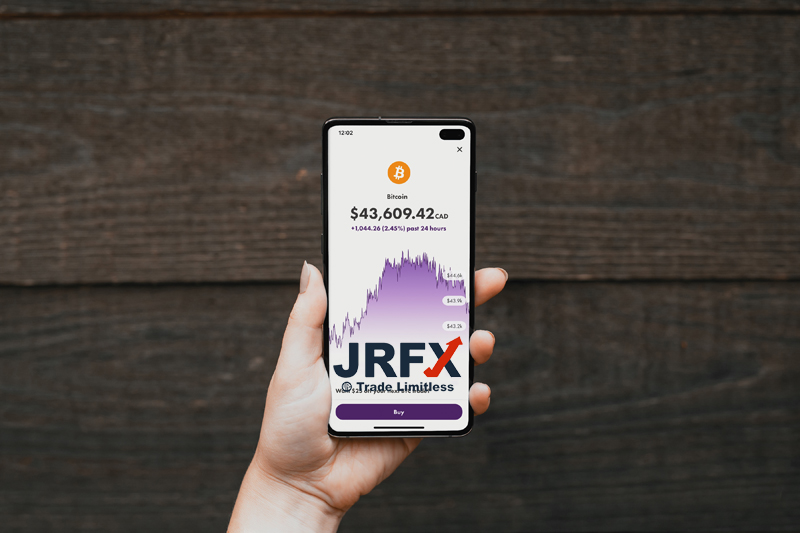Forex trading signals ( jrfx.com/?804 ) have gained popularity as valuable tools to assist traders in making informed decisions in the complex world of currency trading. However, the reliability of these signals remains a subject of debate and skepticism. In this article, we will explore the reliability of forex trading signals, shedding light on what traders can expect and how to discern trustworthy signals from potential pitfalls.
The Nature of Forex Trading Signals
Forex trading signals are alerts or recommendations that offer traders insights into potential trading opportunities. These signals can be generated by human analysts or automated systems, providing details on when to enter or exit a trade, which currency pairs to consider, and suggested stop-loss and take-profit levels.

Factors Affecting the Reliability of Forex Trading Signals
The reliability of forex trading signals can vary greatly, influenced by several key factors:
Signal Provider Reputation: Reputable signal providers have a history of successful signals and transparent performance records. Their reputation in the industry is often a good indicator of reliability.
Analysis Methodology: The methodology used by signal providers is crucial. Reliable signals are based on sound analysis, whether through technical analysis, fundamental analysis, or a combination of both.
Transparency: Trustworthy providers are transparent about their performance, methodology, and track record. They make past signals and their decision-making process accessible.
Risk Management: Legitimate signals include risk management guidelines, such as stop-loss and take-profit levels, to help traders protect their investments.
User Feedback: Reviews and testimonials from other traders can provide valuable insights into a signal provider's reliability and the experiences of those who have used their services.
Selecting Reliable Forex Trading Signals
When evaluating forex trading signals, consider the following:
Research and Due Diligence: Thoroughly research the signal provider. Look for performance records, regulatory compliance, and their overall reputation in the industry.
Free vs. Paid Signals: Free signals may offer limited information, while paid services often provide more comprehensive analysis and support. Assess the value provided by each.
Trial Period: Some signal providers offer trial periods, allowing traders to test their signals before committing to a subscription.
Alignment with Your Trading Strategy: Ensure that the signals align with your trading strategy, objectives, and risk tolerance. Not all signals are suitable for every trader.
JRFX: A Reliable Choice
Over 12 years of experience, JRFX offers high-quality signals generated by a team of seasoned analysts. Their signals are the result of a combination of technical and fundamental analysis, making them a dependable choice for traders.
In conclusion, the reliability of forex trading signals depends on various factors, including the provider's reputation, analysis methodology, transparency, risk management, and user feedback. While scams exist in the forex signal industry, there are also reliable and reputable providers like JRFX ( jrfx.com/?804 ) . Through thorough research and due diligence, traders can identify reliable signals that enhance their trading experience.
The Nature of Forex Trading Signals
Forex trading signals are alerts or recommendations that offer traders insights into potential trading opportunities. These signals can be generated by human analysts or automated systems, providing details on when to enter or exit a trade, which currency pairs to consider, and suggested stop-loss and take-profit levels.

Factors Affecting the Reliability of Forex Trading Signals
The reliability of forex trading signals can vary greatly, influenced by several key factors:
Signal Provider Reputation: Reputable signal providers have a history of successful signals and transparent performance records. Their reputation in the industry is often a good indicator of reliability.
Analysis Methodology: The methodology used by signal providers is crucial. Reliable signals are based on sound analysis, whether through technical analysis, fundamental analysis, or a combination of both.
Transparency: Trustworthy providers are transparent about their performance, methodology, and track record. They make past signals and their decision-making process accessible.
Risk Management: Legitimate signals include risk management guidelines, such as stop-loss and take-profit levels, to help traders protect their investments.
User Feedback: Reviews and testimonials from other traders can provide valuable insights into a signal provider's reliability and the experiences of those who have used their services.
Selecting Reliable Forex Trading Signals
When evaluating forex trading signals, consider the following:
Research and Due Diligence: Thoroughly research the signal provider. Look for performance records, regulatory compliance, and their overall reputation in the industry.
Free vs. Paid Signals: Free signals may offer limited information, while paid services often provide more comprehensive analysis and support. Assess the value provided by each.
Trial Period: Some signal providers offer trial periods, allowing traders to test their signals before committing to a subscription.
Alignment with Your Trading Strategy: Ensure that the signals align with your trading strategy, objectives, and risk tolerance. Not all signals are suitable for every trader.
JRFX: A Reliable Choice
Over 12 years of experience, JRFX offers high-quality signals generated by a team of seasoned analysts. Their signals are the result of a combination of technical and fundamental analysis, making them a dependable choice for traders.
In conclusion, the reliability of forex trading signals depends on various factors, including the provider's reputation, analysis methodology, transparency, risk management, and user feedback. While scams exist in the forex signal industry, there are also reliable and reputable providers like JRFX ( jrfx.com/?804 ) . Through thorough research and due diligence, traders can identify reliable signals that enhance their trading experience.